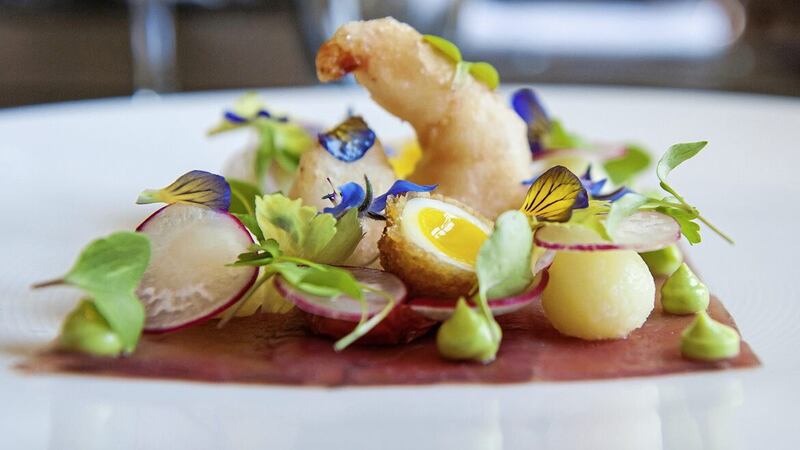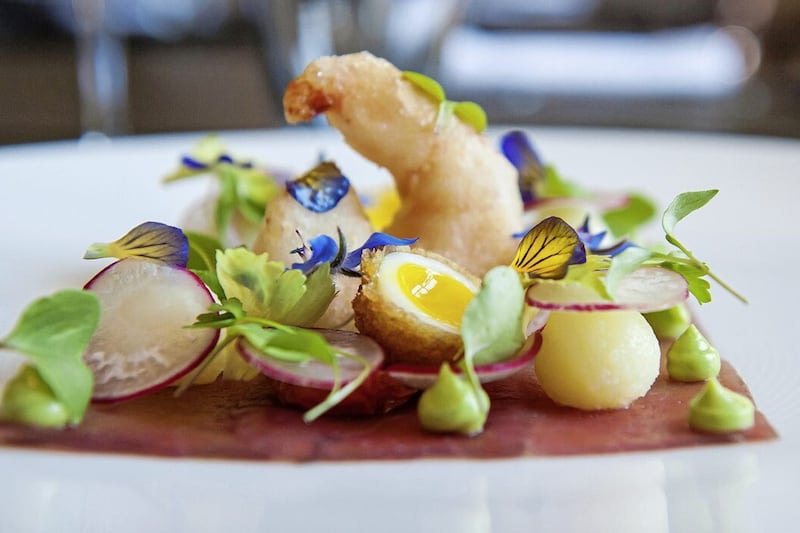DESPITE four in 10 people admitting they are currently struggling with their grocery bills, the gross turnover of the Northern Ireland food and drinks processing sector has continued to rise, new figures show.
The Department of Agriculture, Environment and Rural Affairs (Daera), in its annualNorthern Ireland food and drinks processing report, point to the agri-food sector in the region now being worth close to £5.5 billion - and rising.
But the figures always show a lengthy time lag, and cover the 2020 year, when the food and drink sector increased turnover by 0.9 per cent to £5,424 million.
Daera also says that provisional estimates for 2021 project a 6.4 per cent increase to £5,769 million.
However, these are the two years covering lockdown, when hospitality and the foodservice industry were shut down for long periods, and people were generally consuming at home.
In the period covered by the latest report, the sector contributed 39.3 per cent to total manufacturing sales in the north, up from 36.6 per cent in 2019. It also accounted for 42.5 per cent of external manufacturing sales and 26.8 per cent of export sales.
Between 2019 and 2020, sales were up significantly in Britain (by £107.7m) and in the Republic (up £13.3m) but decreased in Northern Ireland (down £0.3m), other EU countries (down £25.3m) and in the rest of the world (down £47.4m).
Britain remains the sector’s largest market, accounting for 48.9 per cent of sales in 2020, an increase from 47.3 per cent in 2019, though the data was collected before the implementation of the NI Protocol and it remains to be seen how those numbers will be reflected in the current and figure years.
The estimated number of direct full-time employee equivalents in the food sector in Northern Ireland rose 0.8 per cent to 25,078, and it projected to grow further to 25,105 in 2021.
The value added by the sector to the Northern Ireland economy increased by 8.4 per cent to £1,088 million in 2020.
Michael Bell, executive director at the Northern Ireland Food and Drink Association (NIFDA) said: “Food and drink continues to be a key driver for growth in the region, remaining the largest manufacturing sector locally, accounting for over 30 per cent of total manufacturing employment.
“The figures relate to 2020, a challenging year for all industries at the height of the Covid-19 pandemic, and the success of Northern Ireland food and drink in that period is a testament to the resilience of the sector, and its ability to rapidly respond to the challenges of the pandemic.
“But while the sector continues to grow, it remains hampered by the lack of a capital investment support scheme.
“We are at a stark competitive disadvantage to our regional neighbours, as the only jurisdiction on these islands without a capital support scheme.
“A comprehensive capital investment programme is essential for future proofing the industry, and would boost our ability to innovate in quality, productivity and sustainability.”






